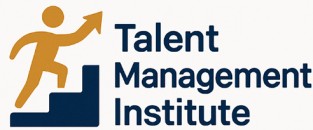Core Responsibilities of a Development Director
Core Responsibilities in Leadership and Fundraising
The role of a Development Director in a nonprofit organization goes beyond merely managing fundraising efforts. Being a dynamic position that requires strategic vision and operational oversight, the development director is responsible for driving the mission forward through leadership and resource acquisition.
At the heart of the development director's role is the management of donor relationships and fundraising initiatives. This entails setting and achieving fundraising goals, organizing special events, and planning giving strategies. The director will often collaborate closely with the executive director and the board of directors to align fundraising activities with the organization's mission.
Another key responsibility involves overseeing staff and volunteers engaged in fundraising activities. It requires building a cohesive team and ensuring that each member is utilized effectively to maximize the potential of all fundraising initiatives. Experience with software donor management systems is often necessary to streamline operations and maintain comprehensive records of donor interactions.
The job description typically highlights the importance of external relations, requiring development directors to network and build partnerships that further the organization's objectives. This can involve engaging with major donors and coordinating with other executive roles to enhance the organization's profile and reach.
To fulfill these tasks effectively, a director's experience in nonprofit fundraising is crucial, often complemented by a bachelor degree in a related field. Skills in communication, negotiation, and a proven track record in achieving set goals are invaluable for this role development.
This multi-faceted job extends to executive search and recruiting strategies to build a capable team, leading to a well-rounded approach to talent and donor management in an ever-evolving nonprofit landscape.
Essential Skills for Success
The Building Blocks for a Successful Development Director
Understanding the essential skills required for success in a development director role can make a world of difference in nonprofit organizations. These skills are not only crucial for personal success but also play a vital part in the expansion and sustainability of the organization's initiatives. Below are key skills that a development director should cultivate:- Leadership and Management: Effective leadership is the backbone of any successful director job. This includes the ability to guide and inspire a team, making strategic decisions while ensuring that fundraising goals align with the nonprofit's mission. Experience as an executive director or managing major gift programs can provide valuable insights into leading a productive team.
- Communication and Networking: A development director must excel in communicating the organization's mission and goals to stakeholders, including donors and board directors. Building strong relationships with donors and effectively leveraging these connections is a necessary skill. Whether it's through direct communication or orchestrating special events, the ability to connect with people is paramount.
- Strategic Planning: Crafting a comprehensive development and fundraising strategy is vital. This requires a deep understanding of the nonprofit job landscape, the ability to analyze market trends, and the capacity to implement innovative fundraising strategies. A strong grasp of executive search techniques and job boards can also provide a tactical edge.
- Financial Acumen: Managing fundraising budgets and understanding financial statements, such as those associated with major fundraising events and donor contributions, are critical. A bachelor's degree in finance or a related field can be advantageous in this aspect.
- Technical Proficiency: Today's development directors must be comfortable using software donor management platforms. Experience with donor management systems enhances the capacity to streamline operations, improve donor relationships, and harness data for strategic advantages.
Challenges in Talent Management
Overcoming Obstacles in Talent Management
In the dynamic world of nonprofits, a Development Director faces unique challenges in talent management that can impact the overall success of the organization. Navigating these obstacles requires a strategic approach and a deep understanding of both the role development and the nonprofit landscape.
One of the primary challenges is the alignment of fundraising goals with the skills and capabilities of the team. Development Directors must work closely with the executive director and board directors to ensure that the team is equipped to meet major fundraising targets. This often involves identifying gaps in skills and implementing targeted training programs.
Another significant hurdle is maintaining donor relationships. The nonprofit sector relies heavily on major gift donations, and a director will need to manage these relationships effectively. This includes not only engaging with current donors but also expanding the donor base. Experience in nonprofit management and a strong understanding of donor software can be invaluable here.
Moreover, the director job description often includes the task of organizing special events. These events are crucial for fundraising and require meticulous planning and execution. Balancing these responsibilities with the day-to-day management of the team can be challenging, but it is essential for achieving fundraising goals.
Finally, the recruitment and retention of skilled staff is a persistent issue. With job boards frequently listing nonprofit jobs, competition for talent is fierce. A Development Director must employ effective tips for hiring and create an environment that encourages staff retention.
By addressing these challenges head-on, Development Directors can enhance their team's performance and drive the organization toward its objectives.
Innovative Strategies for Talent Development
Implementing Innovative Talent Development Strategies
In the evolving landscape of talent management, development directors are required to continuously innovate to ensure they retain top talent within their organizations. Drawing from their extensive experience in nonprofit roles, a development director must harness both traditional and creative approaches to stay ahead in the field.- Structured Mentorship Programs: A key strategy involves establishing structured mentorship initiatives. These programs pair less experienced staff with seasoned professionals, fostering knowledge sharing and career growth. Such mentorship not only nurtures talent but solidifies the organizational culture and strengthens the team dynamics.
- Leveraging Technology in Talent Development: The advent of advanced software solutions allows directors to implement data-driven approaches to track and manage employee progression. By utilizing donor management tools, directors can better understand the key metrics of success for individual staff members and tailor development opportunities accordingly.
- Customized Learning Opportunities: Crafting individualized learning paths for staff can significantly enhance their skills, making them valuable assets within the organization. Directors who invest time in understanding the unique training needs of their staff can better align these opportunities with the organization's overall fundraising goals, leading to more significant outcomes.
- Encouraging Cross-Functional Projects: Promoting collaboration across various teams encourages innovation and a fresh perspective on organizational challenges. Development directors who facilitate cross-functional teams can drive creativity, uncover unexpected skill sets among staff, and achieve organizational goals more efficiently.
- Fostering an Inclusive Culture: Lastly, part of innovative talent development is creating an inclusive environment where diverse thoughts and experiences are valued. Directors should take active steps to ensure that all voices are heard, particularly when planning special events or engaging with major donors. This inclusivity can pave the way for fresh ideas and new partnerships.
Measuring Success and Impact
Evaluating Success and Gauging Impact in Talent Development
In their role, a development director must determine how well they are meeting fundraising goals and fulfilling the job description set out for them. This involves more than merely ticking boxes on a checklist—it means truly assessing the job's impact on the nonprofit organization and its mission. Tracking and evaluating performance involves several key components:- Fundraising Metrics: It's crucial for the development director to monitor the success of fundraising campaigns and major gift acquisitions. This includes analyzing donor engagement, retention rates, and the effectiveness of special events.
- Team Performance: As a leader, the director will assess and support the skills and experience of team members, ensuring they are growing in their roles and contributing to the organization’s objectives.
- Executive and Board Feedback: Regular discussions with the executive director and board of directors can offer insights into both the successes and areas for improvement in development strategies.
- Donor Relations: The strength of the relationships cultivated with donors is a significant measure of success. The tone and results of these interactions speak volumes about a director's work and influence.
- Technology Utilization: Effective use of donor management software can streamline processes and provide valuable data on campaign progress and donor interactions, supporting more informed decision-making.
Future Trends in Development Roles
Emerging Trends in Development Roles
In the ever-evolving landscape of talent management, the role of a development director is also subject to change. To stay ahead, organizations must adapt to emerging trends and reshape their approaches. Here are some key developments shaping the future of development roles:- Integration of Technology: The digital transformation is impacting nonprofits by introducing new software for donor management. This technology aids development directors in tracking donor interactions and analyzing fundraising data to meet goals efficiently.
- Focus on Data-Driven Strategies: Development directors are increasingly relying on analytics for informed decision-making. By leveraging insights from donor behavior and engagement metrics, they can refine strategies for major gift initiatives and fundraising campaigns.
- Personalization of Donor Engagement: As donor expectations evolve, development directors are tasked with personalizing engagement strategies. This involves tailoring communication to align with donor preferences, thereby increasing retention and satisfaction.
- Emphasis on Sustainability: Future roles in development will prioritize sustainable and long-term giving models. Directors must work closely with board directors and executive teams to cultivate a culture of responsible financial stewardship.
- Adaption to Remote Work: The shift towards hybrid and remote work environments demands flexibility from development directors. Effective remote management and virtual donor interactions are essential skills for succeeding in this new norm.







